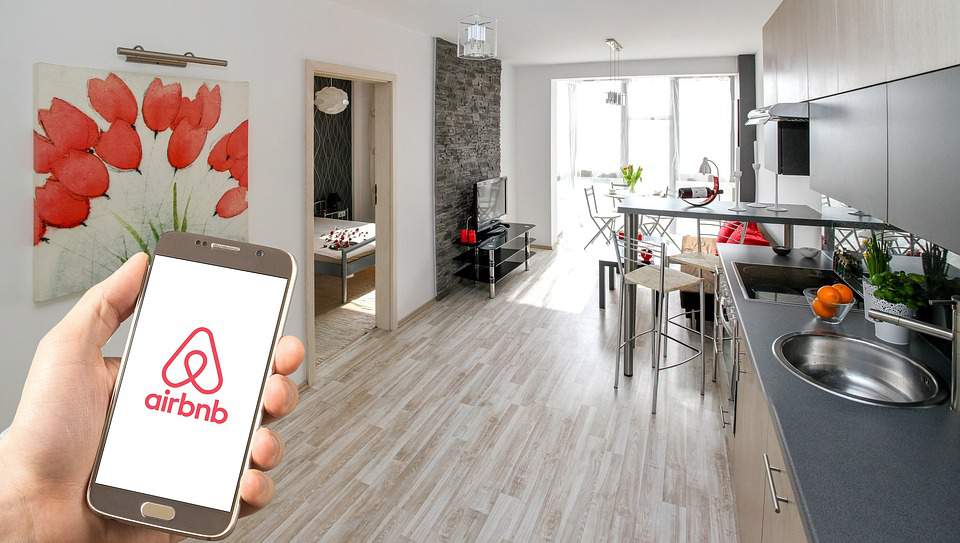Change language:
Bad news for tourists: Budapest district may ban Airbnb in September!

Budapest’s 6th district is one of the most famous districts for tourists coming to the capital since it is in the heart of the city with astonishing buildings and perfect options to serve as a base for visiting all the beauties of Budapest. Now, locals may ban Airbnbs in a September referendum.
Almost 1,500 short-term rentals in a Budapest district
The district’s mayor, Tamás Soproni, shared the unexpected news on his official Facebook page this morning. He said the referendum would be decisive: they will execute the locals’ will.
Mr Soproni said there were 1,468 legal short-term rentals in the district with a population of approximately 35 thousand. The number of private and other type of tourism accommodations reaches 2,226. That is close to 8 percent of all homes in the area, the local council said. Soproni added that the local government received HUF 670 million (EUR 1.7 million) in 2023 in tax paid by short-term rental operators.

Soproni said such accommodations cause many problems for locals, so they must decide together about their future. Following Swiss patterns, they will distribute a brochure to each household comprising arguments for and against a total ban. Moreover, they will ask experts and lobbyists at a conference on the issue.
Locals may take part in a decisive referendum
The Hungarian National Assembly authorised each local government in Hungary to set the number of opening days for short-term rentals. Budapest’s 6th district will be the first to use that power.
Since the Parliament did not give power to the local governments to check the number of opening days, locals in Terézváros will decide on a total ban and business as usual in the referendum. Thus, the question will be simple: “Do you agree to ban renting apartments as Airbnb-type accommodation?” The voting will take place between 2 and 16 September.

You may vote online and offline, provided you obtain a permanent residency card or a local address in the district and are above 16. Soproni highlighted that the voting is decisive. Therefore, they will execute the locals’ will.
Big players would introduce more restrictions on Airbnbs in Hungary
As index.hu wrote, a powerful lobby from big players like the Hungarian Hotel & Restaurant Association tries to restrict short-term rentals (Airbnbs) in Hungary. Though all players believe in strict regulation which would boost the Hungarian tourism sector, short-term rental operators are afraid of gossip about limiting the number of opening days for such accommodations. News is about 120-180 days each year, which the Airbnb sector regards as a catastrophe.

Currently, there are more than 14 thousand Airnbns in Hungary, including rural tourism houses and downtown apartments. The Hungarian Tourism Agency (MTÜ) introduced strict rules concerning short-term rentals, which is unique in Europe. For example, they prescribed daily reports, introduced compulsory accommodation ratings, and operators must pay tourism development tax.
Limiting the number of opening days unexpected bad news
Balázs Schumicky, the head of MAKE, an association of Hungarian short-term renters, said they created a good regulation, and the state saw every data they wanted. That is why Márton Nagy, Hungary’s top economy minister, asked for proposals for deregulation instead of restrictions.
Therefore, gossip about limiting the number of maximum opening days came as an unexpected surprise. Csaba Wakszmann, the deputy leader of another interest-protection association, said it was especially the Hungarian Hotel & Restaurant Association that urged stricter restrictions. PM Orbán gave 30 September as a deadline for Minister Márton Nagy to come up with a new regulation. However, neither the MTÜ head nor the minister invited players of the Airbnb sector to talks.
The government’s ambitious tourism plans require Airbnbs
Players in the sector argue that restricting short-term rentals would endanger the government’s ambitious tourism development plans. Limiting the number of opening days would be unbearable for Airbnb operators.
Based on the KSH (Hungarian Central Statistical Office), in 2023, 32.36% of foreign tourist guest nights in Budapest were spent in short-term rentals.
Mr Schumicky shared other data. He said KSH data shows Airbnb does not increase long-term rental prices because prices in rural cities grew more than in Budapest’s downtown. Therefore, short-term rentals do not contribute to the housing crisis.
Furthermore, international examples show that restricting such rentals does not increase hotel utilisation because guests choose other destinations, so the city or the country loses revenues. Finally, most short-term rentals with a capacity of 2-4 people do not host party tourists who may disturb local residents.
All in all, players in the sector expect similar conditions for all tourism players, including hotels and short-term rentals. If the latter suffered and got limited, fairness would be out of the question.
Read also:
- Accommodation prices skyrocket in Hungary – Read more HERE
- Airbnb prices began to decrease in Budapest








Bravo!
Well I have rented an Air BNB on Andrassy Ut on September 14-20. Does this mean that if the ban passes, I lose my money and my place to stay while in Budapest?
Though I hate AirBnB as a company (another Leftist corporation pushing radical social engineering) and am not super delighted about the few apartments that are being so rented out in my own building, I oppose a blanket ban and will be voting AGAINST.
This is not a matter that Big Government needs to poke its nose in. It’s a decision to be made by individual condos and coops.
Given that the typical flat rents for 160K per month, and there are 1468 units, and the tax is 15% – assuming everybody pays the tax in full and nobody ever has unrented accomodation, the total tax revenue would be 423M HUF per year. And that would be paid to the national government, not the city (who have limited streams of income and are constantly battling with the national government for revenue). This compares with the stated 670M HUF
So who wins here? Not the residents of 13th district.